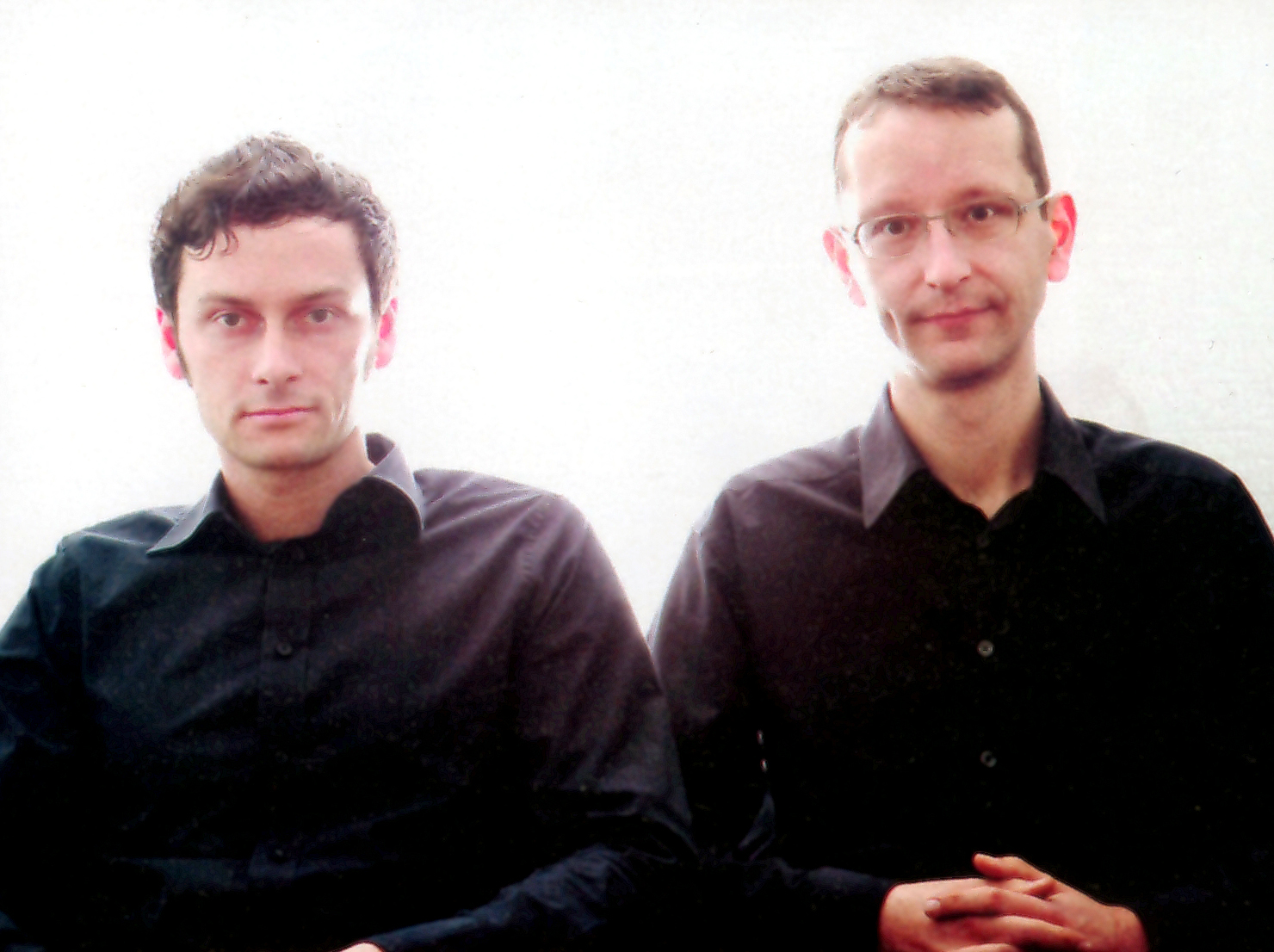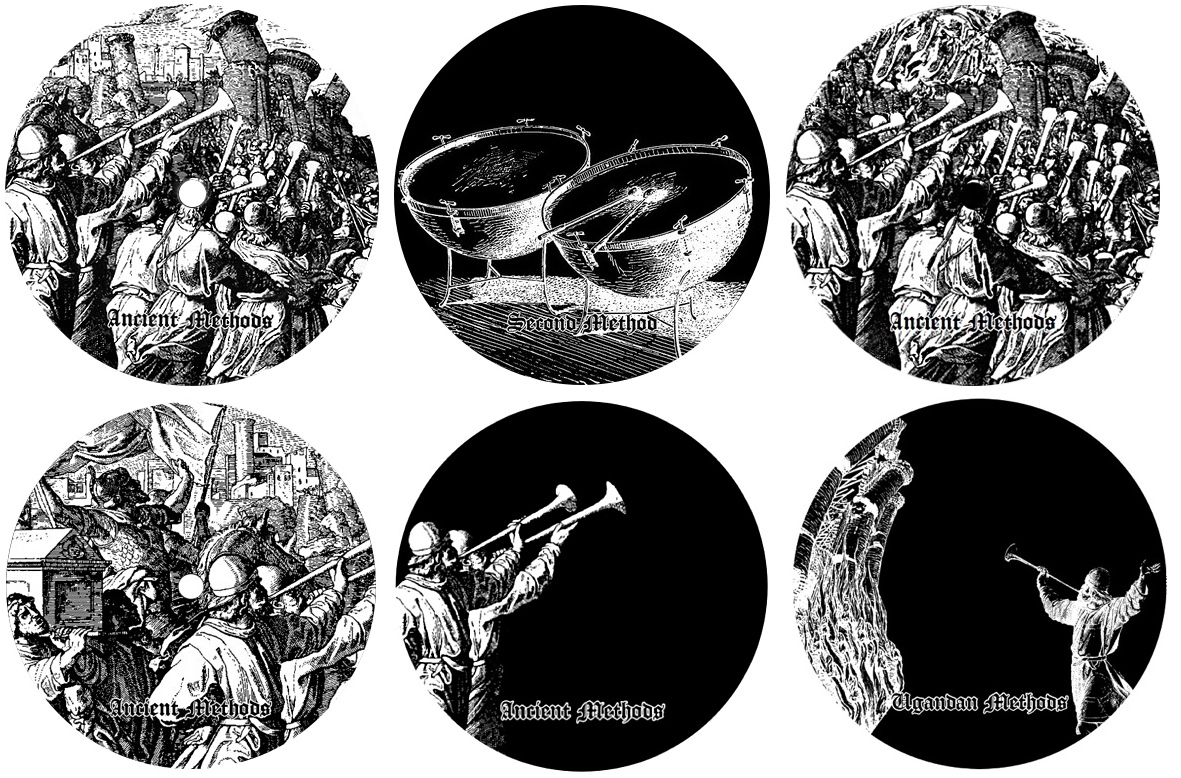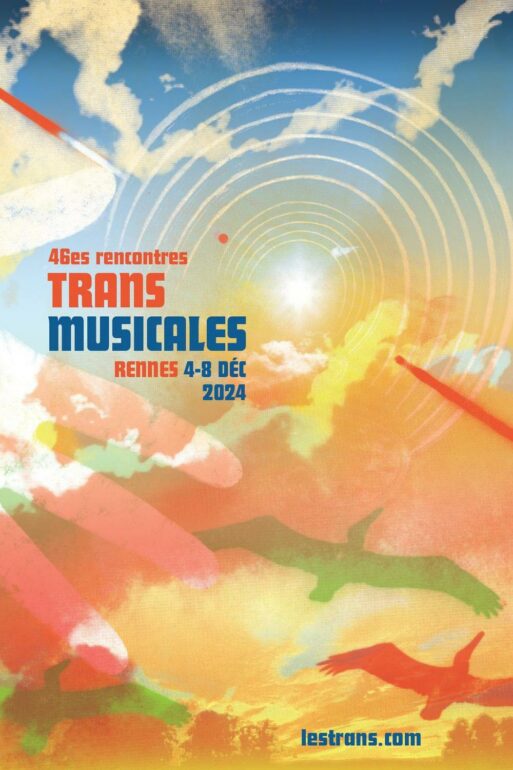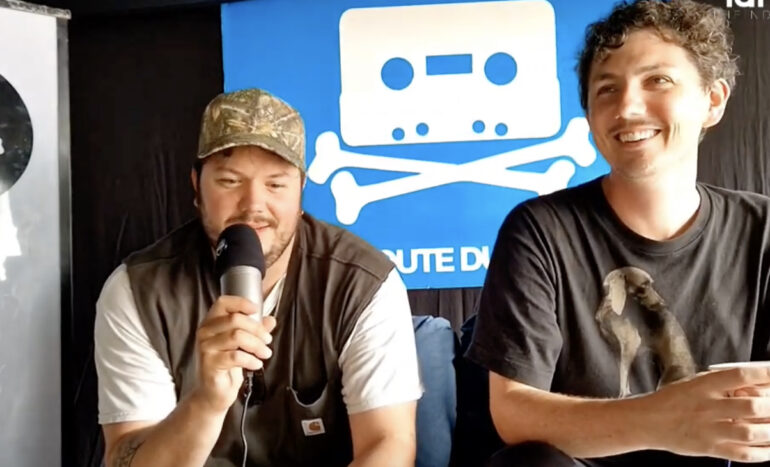-
play_arrow
HZ RADIO hz radio
Plutôt confidentiel à ses débuts, le projet Ancient Methods a été l’un des premiers à imposer une techno lourde et métallique à une époque où le genre manquait de nerf et d’imagination et où le revival industriel n’était pas encore au goût du jour. Le duo allemand avait créé une techno veineuse, carnassière, toute en tôle froissée, mais bourrée de groove et de sophistication. Leur formule s’est déclinée sur 5 irréprochables EP entre 2007 et 2010, sortis sur leur propre label de manière plus ou moins anonyme, avec pour seule identité une imagerie volontiers médiévale sur les pochettes. Désormais un projet solo, AM s’est mis à tourner et à gagner en réputation, entre autres grâce à des collaborations avec Régis, et à la domination industrielle qui s’installe sur la techno. Les questions qui suivent étaient d’ailleurs destinées à un article sur le sujet, mais ses réponses sont malheureusement arrivées trop tard pour y être incluses. Les voilà donc hors contexte, à l’occasion de la sortie de Seventh Seal, septième volet des Méthodes Anciennes.
As-tu observé une forte émulation du côté industriel/avant-gardiste de la techno récemment, ainsi qu’une popularité grandissante de ce genre ?
Don’t you feel there’s been a strong emulation of the industrial/abstract techno sound in recent years as well as a growing public interest? Like a proper scene that took shape?
Selon moi, la techno retourne à ses racines dans son ensemble, musicalement parlant. Après une phase où une techno minimale bien docile a dominé, on ose réintégrer dans le son des éléments plus physiques, percutants, voire en ajouter d’autres encore plus expérimentaux, plus sombres. C’est d’ailleurs pour ça que ce genre de techno est perçue comme « industrielle ».
In the main – that’s how I feel it – techno is going back to its roots, musicwise. After a period of predominating, tame minimal techno people dare to put the physical, forceful elements back into the sound and they dare to put more experimental and perhaps “darker†elements into it. This is probably the reason why this kind of techno is perceived as “industrial technoâ€.
Ancient Methods a commencé en 2007 à une époque où ce genre de son était très confidentiel. Comment le projet a-t-il été reçu à l’époque ?
You started Ancient Methods quite a while ago, at that time was there anyone around who made that kind of sound? How was it received?
C’était une des raisons qui m’ont poussé à créer le label (du même nom, ndlr), parce qu’aucune techno ne m’enthousiasmait vraiment à l’époque, et aucune soirée ne m’était adaptée. Ainsi le son du label n’était pas vraiment « le son du moment » et les réactions étaient vraiment divisées. Il y avait de très bons retours de la part de gens du même univers que le mien ou de soutiens de longue date, mais ça m’a pris presque deux ans pour vendre le petit stock des premières sorties. Le plus étonnant c’est que le disque a été très apprécié d’un public qui n’était pas spécialement dans la techno, alors que c’est un son destiné au dancefloor.
It was one of the reasons to start the label that there were almost no enjoyable techno records and hardly any techno parties for me available at this time. Hence the sound of the label were not exactly the “sound of the hourâ€, the reactions were torn. There were very positive reactions by a very few likeminded people and early supporters. But it took almost two years to sell the small amount of the first releases. As the music was dedicated to techno-floors it was kind of surprising that there was mainly a pretty good feedback by people who were not into techno that much.
En dehors d’influences purement musicales, quelles sont selon toi les origines du son très brutal et plombé d’Ancient Methods ?
Outside purely musical influences, what do you think are the roots of that deeply dark, brutal and bleak sound of yours?
On pourrait dire que seule la musique la plus sombre et triste réussit à me faire de l’effet, alors qu’une musique plus « joviale » ne m’atteint tout simplement pas. C’est peut-être pourquoi Ancient Methods ne sonne pas comme « brutal » ou « plombé » à mes oreilles. Il en va de même pour la littérature et les arts visuels que j’apprécie. Il m’est difficile de ne pas citer d’influences musicales, et je trouve un peu difficile de nommer des peintres ou des écrivains comme inspiration. Cependant je reconnais que Bergman ou les vieux Lynch ont eu un impact sur ma créativité, surtout pour leur atmosphère. C’est un peu comme jouer un vinyle : il y a une aura crépitante, intense qui me fait retourner constamment vers ces Å“uvres, elles ne perdent rien même si je connais par cÅ“ur leur contenu, leurs scènes et leurs dialogues.
You might perhaps say that it is rather sad or dark music that always had a strong attraction to me, whereas music you could describe as “happy music†simply does not touch me. Maybe this is the reason why Ancient Methods doesn’t feel “brutal†or “bleak†to me. Similar might be true for visual arts or literature I enjoy. Though it’s difficult for me to make out a certain influence on the music apart from music itself and it strikes me as a bit too factitious to name writers or painters I enjoy as an influence on the music. Obviously there are movies I could consider as a direct influence. I love Ingmar Bergman and the early David Lynch, for the atmosphere these movies provide. Its similar to playing a vinyl record. There is an intense, crackling aura that makes me watching it again and again; this is why it doesn’t lose anything even if I am familiar with all their content, scenes and dialogues.
Il y a désormais une branche post-punk/indutrielle très prégnante dans la techno avec une véritable scène très développée en Europe, mais peut-on considérer que des artistes comme Sleeparchive, Mika Vianio, les labels Chain Reaction ou Pom Pom ont ouvert la voie ?
There’s now a strong industrial/post-punk branch of techno that is recognized with a lot of likeminded labels in Europe, but can’t we consider artists like Sleeparchive, Ø (Mika Vainio), the Chain Reaction roster and some of the Pom Pom releases opened the way?
Il y a bien sûr eu des labels techno qui ont rendu leurs affinités ou racines industrielles audibles bien avant le buzz actuel (et pas seulement Downwards, mais d’autres pionniers rarement cités comme E-Com, Seico Corporation, Zhark ou même Adam X). Mais si nous parlons de ce qui se passe en ce moment, je dois avouer qu’en termes de son, je ne vois pas vraiment la connexion musicale entre ces artistes et la branche « techno industrielle » à laquelle ils sont affiliés, et je me demande si eux-mêmes se reconnaîtraient comme tels. Chain Reaction a une toile de fond très dub et reggae (quand on pense à Porter Rocks), mais je ne trouve pas ça spécialement indus. Il se peut qu’il y ait un abus du terme industriel actuellement.
Of course there were labels in the techno scene long before the current buzz who made their industrial roots or affinity audible (not only Downwards but also the criminally overlooked pioneers like E-Com, Seico Corporation, or Zhark and if nothing else Adam X’ activities). But if we talk about the current “industrial techno†buzz I have to admit if I just focus on the music I don’t always see a clear connection – only in a musical sense – between the artists and the “industrial (techno)†branch they are filed in. And sometimes I wonder if the mentioned artists themselves would describe their music as “industrial technoâ€. Notwithstanding the greatness of labels like Chain Reaction I can hear a lot of dub and reggae influences but (perhaps apart from the first Porter Ricks record) this is nowhere near “industrial†to me. Therefore I can’t help thinking that there is currently a bit of a confusing overuse of the “industrial(techno)†term.
Cette tendance industrielle est-elle soutenue en Allemagne, ou du moins à Berlin avec le Berghain ?
Is that industrial techno sound popular in Germany? Or at least in Berlin? The Berghain seems to be very supportive of that scene.
Je ne suis pas sûr qu’on puisse parler d’une véritable scène en Allemagne. Je pense que ce son est en train d’intervenir maintenant en plein milieu de la scène techno. Ce son étant de mieux en mieux reçu et accepté, on le retrouve aussi dans de plus gros clubs.
I’m not sure whether we can speak of a scene here in germany, in the sense of something definable. I think this sound we speak of is happening right now in the middle of the techno scene. And as darker and harder sort of techno gets a greater acceptance and reception again it also becomes featured in bigger clubs as well.
Comme c’est souvent le cas dans ce genre de techno, les tracks d’Ancient Methods ont des structures ouvertes, reposant surtout sur des sensations. Jusqu’où aimes-tu jouer sur la limite entre le dansable et l’opaque ?
As it’s often the case with this type of techno, your tracks are built on atmospheres, sensations, their structures are rather open, how do you proceed basically? How far do you like to play with the limit between the danceable and the totally opaque?
Produire un track d’Ancient Methods consiste à essayer de coller le plus possible à une vision précise que j’avais en tête. Le hasard joue un rôle mineur là -dedans, même si certains éléments aléatoires rentrent en jeu, mais en général je ne les utilise pas, je les stocke pour un moment plus approprié. Le potentiel dancefloor est très important, il est au cÅ“ur du label et c’est un élément de base de tous les morceaux. Chaque morceau est créé sur la base d’un besoin personnel : je me demande quel genre de son j’aimerais entendre sur un dancefloor pour m’éclater, être surpris, stimulé, ensuite je transforme ça en musique, et parfois ça marche.
Producing an Ancient Methods track is always about to come as close as possible to a very concrete vision of a track I have in my mind. Happenstance rather plays a minor part. Of course there are “open†or random elements as a result of experiments. But mostly I don’t use those random elements instantly, instead they are archived and used at a suitable opportunity. Danceability is very important, it has always been the main emphasis of the label and is a constitutive element for most of the tracks. The vision of a track to produce is always all about a personal need. I ask myself, what kind of track would I like to hear on dancefloor to party, to be surprised, to be thrilled, to be happy. Then I try to transform this vision into music. And in rare lucky moments it works out.
Shifted avait déclaré en interview que même si la techno indus gagnait en popularité, elle était, de nature, trop sombre et dystopique pour être victime de son succès et perdre de sa substance. Es-tu du même avis ?
In an interview, Shifted said that although industrial techno was getting more and more popular, it was too dystopian and dark at its core to really « sell out » or lose its substance. Do you feel that way?
Je n’ai aucun doute sur le fait que tout peut être commercialisé et galvaudé. Quand il s’agit de vendre, les contenus comme la musique deviennent secondaires et les règles des médias et du marketing prennent le dessus ; ainsi cela pourrait s’appliquer aussi à la techno industrielle. Mais puisque nous parlons d’indus en termes de son comme d’attitude, il faut soulever un point : même si l’on nomme cette scène « industrielle », ce n’est en fait pas que du bruit, mais plein de styles différents, comme du rhythmic noise, du dark ambient, de l’expérimental, voire certaines musiques ésotériques et de la folk. Mais tous ces genres ont une attitude en commun, dont le rejet de certain canaux qui pourraient mener vers une commercialisation outrancière. La question est donc cruciale de savoir si l’on désigne par « industriel » un certain son ou une approche générale, et on n’a pas encore la réponse. J’apprécie le fait que la techno industrielle connaisse un certain succès commercial parce que je pense qu’elle en avait besoin pour que les producteurs et les DJ osent de nouveau sortir de leur zone de confort. La techno est finalement de nouveau intéressante et j’espère qu’elle va le rester pendant un moment et ne pas être sur-hypée et ainsi détruite de si tôt.
I have no doubt that people are able to sell out anything. When it comes to sell out, contents like music get secondary and the rules of media and marketing take over, so basically this should apply to music with the “industrial technoâ€-label as well. But as we speak about “industrial†and the transformation of this description into the techno context on the one hand and about attitudes on the other hand, this is certainly an interesting aspect: However you will name this music scene where “industrial†is the headline for, it has actually not only noise but many different styles to offer, like there is rhythmic noise, dark ambient, various experimental styles and you even encounter ritual and folk music in this scene. But all those different styles of music have a certain attitude in common, including the rejection of certain channels that can be considered as the servants of a sellout. So indeed it is maybe the crucial question whether the industrial-label and its use in the techno scene refers to a certain sound or a general approach. This question seems to be unanswered for now. However for me personally, it is all about music only. I can appreciate a commercial success of “industrial-techno†sound because I feel that it needed some kind of popularity first to make producers and DJ’s dare again to leave the comfort zone. Techno is finally getting interesting again and I hope it will remain for a while and not be overhyped and killed too soon.
Vidéo
Écrit par: Thomas Corlin
Articles similaires
HZ since 2007
Hier, sans aucune forme de prétention, nous cherchions à transcrire et à réfléchir notre époque. Curieux et audacieux, défricheur passionné, nous explorions sans oeillères et à travers un contenu éditorial toujours riche
et exigeant l’ensemble des strates qui composaient le monde bouillonnant de la musique indépendante, ses marges souvent nichées dans le creuset du web comme le halo médiatique qui entourait certains. Mais çà c’était avant. Aujourd’hui, on fait ce qu’on peu !
doner dooner
dieu vous le rendra….
Hartzine the indie music webzine since 2007






Commentaires d’articles (0)